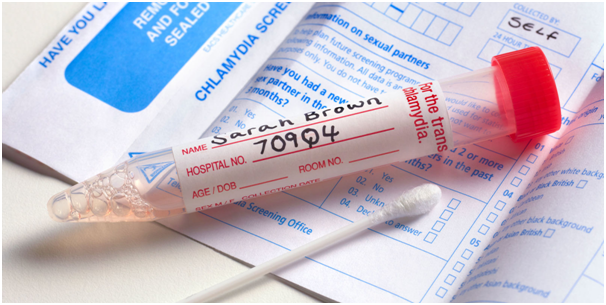Despite increased awareness and education, the rate of sexually transmitted infections continues to rise. Many doctors believe that it is embarrassment that makes so many people avoid getting help or treatment.
Surveys taken also highlight a lack of understanding about common infections such as chlamydia among the public at large. Less than 50% of those questioned knew that chlamydia could have no symptoms. A third also admitted to not having a test through embarrassment and not wanting to ask their GP for one.
The highest rates of chlamydia are among the age group 16 to 25 and of these, more than a third said embarrassment was the main reason for refusing to get tested.

What is chlamydia?
Chlamydia is a bacterial infection that easily spreads between people through unprotected sex. It doesn’t discriminate and affects both men and women, with young women being particularly at risk. Rates of the infection continue to rise, and it remains the most common form of sexually transmitted infection in the UK. A Chlamydia is a bacterial infection which can be easily be passed from one person to another as a consequence of unprotected sex.
One of the most worrying factors about chlamydia is that not only is there a general lack of understanding but it can be contracted without the person knowing they have it for a long time. There can be no noticeable symptoms and if left, can spread out to other areas of the body.
Approximately 50% of men and 70% of women will experience no symptoms at all. For those who do notice changes, this usually occurs between one and three weeks after infection. For women, this might include excessive vaginal discharge, bleeding after sex and pain in the abdomen or when urinating or having sex. For men, a milky discharge might be noticed from the penis, pain when urinating and possible swelling of the testicles.
If any of these symptoms appear, it is really important to visit your GP, local sexual health clinic or pharmacist. For those too embarrassed to do this, the solution is Home STI kits London from https://www.bexleysexualhealth.org/chlamydia_screening/
When chlamydia is left untreated, over time more serious complications can occur. For women, an infection can move to the womb, fallopian tubes and ovaries causing pelvic inflammatory disease. Eventually infertility could occur. The risk of having an ectopic pregnancy is also increased. Women who are pregnant can pass the infection onto their baby, risk giving birth to a premature baby or suffer a miscarriage.

For men, a painful swelling of the testicles can occur, which left untreated can also result in infertility. Chlamydia is also responsible for joint inflammation, such as arthritis and Reiter’s syndrome.
Treatment can easily be achieved with a simple course of antibiotics. A follow-up check is not normally required as long as the course is completed, and the person has refrained from sexual intercourse for the period of the treatment.


